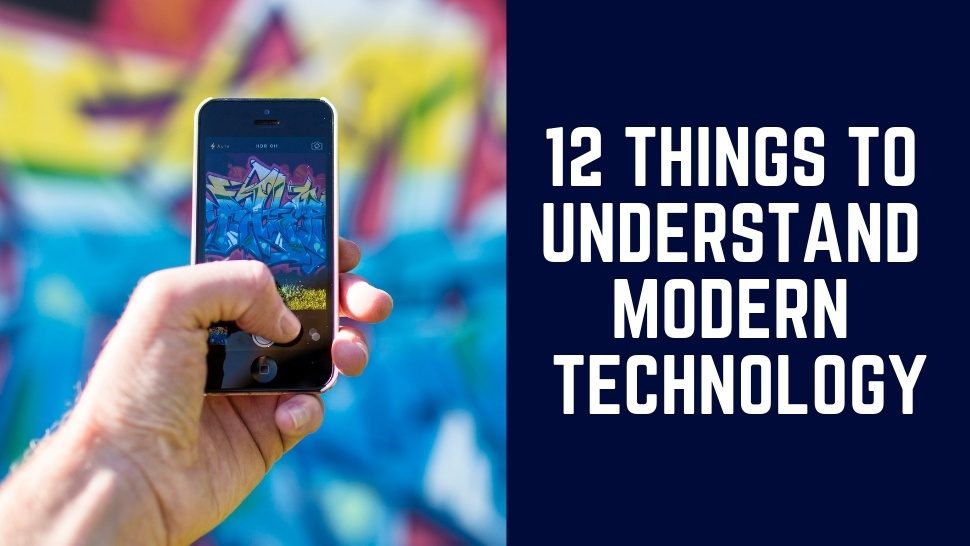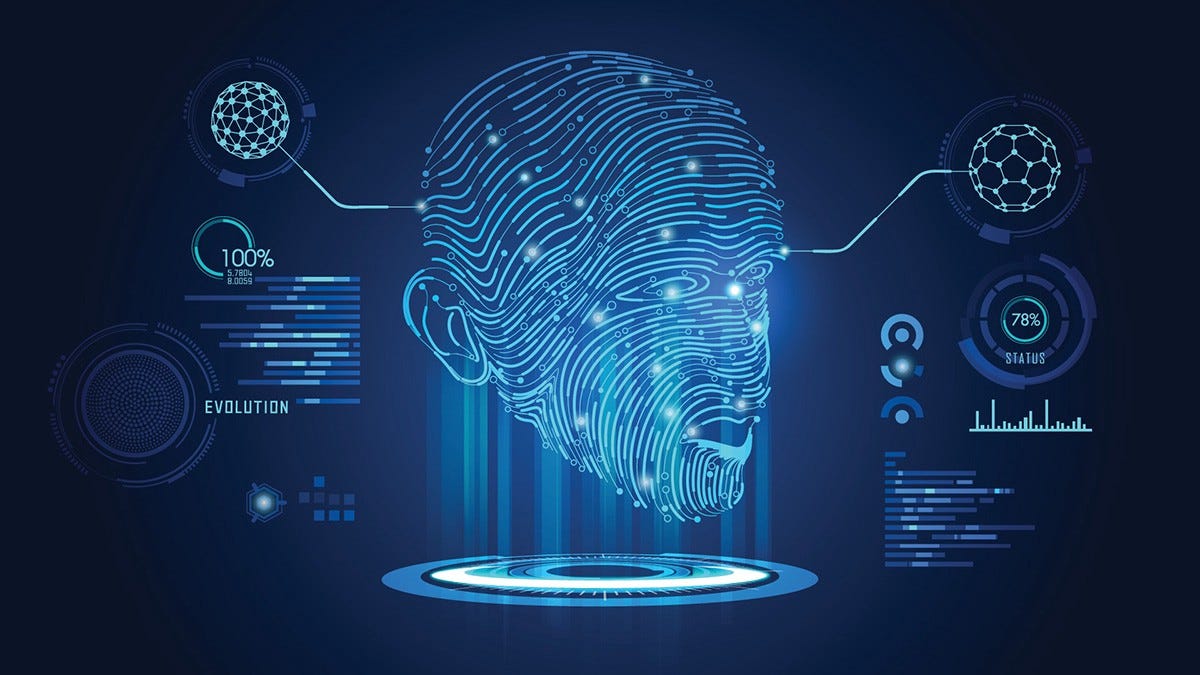Modern technology is more important than ever before, as it strongly influences our culture, politics, and society. Since we spend time with various devices and applications, we should understand the principles that determine how technology affects our lives.
Understanding of today's technology
Technology is not just an industrial branch, it is a method of transforming the culture and economy of existing systems and institutions. We would hardly understand this claim if we mean by technology only a set of products that we buy. However, technology has a much deeper meaning than the phones that we do not get separated from. We need to understand basic social movements if we want to properly interpret the process by which technology companies shape our lives - especially if we want to influence people who, in fact, create modern technology.
We will set out some key principles that would help us understand the place of culture in technology.
What we need to know is that:

1. Technology is not neutral
Everyone needs to know the most important thing about the applications and services he uses, that is, the values of the technology creators are embedded in every button, every link, every great icon we see. The choices made by program creators in relation to design, technical architecture or business model can have a profound impact on our privacy, security, even our civil rights as users. When the program encourages us to make a square instead of rectangular images, or that the microphone in the living room is always included, or that employers can always invite us, our behavior changes, and therefore our life.
All the changes in our life that take place when we use new technologies happen because our priorities have been determined by the creators of the same technologies.
2. Technology is not inevitable
There is a generally accepted view that technology is an endless process of continuous progress in which all things become better for everyone. In fact, new technological products usually include a set of contradictory characteristics. For example, improvements in the field of use or design always carry some weaknesses, such as problems in the field of privacy or security. Some technologies are better for one community, while others create problems. More importantly, although technology is better in some way this does not necessarily mean that it will be generally accepted, nor will it influence the improvement of more popular technologies.
Technological advances are much like the evolution of the biological world: there are many blind streets and regressions, although over time we see progress.

3. Most people in the world of modern technology are well-intentioned
We can be cautiously skeptical or critical of products and companies of modern technologies, but we do not have to immediately consider that all creators of technology are "bad". Their aspiration to make the world better is truly honest, but at the same time, they must understand that their benevolence does not relieve them of the responsibility for the negative consequences of their work, no matter how intentional their intentions are. Of course, we should point out these right intentions in order to recognize the bad ones and reduce their influence in order not to overcome, for the time being, the majority.
4. The history of modern technologies is poorly documented and understood
People can usually find every little detail about how their favorite programming language or device originated, but it's almost impossible to determine why some technology has progressed, but what happened to those who failed. Although we are still in the early stages of the computer revolution, when many of its beginners continue to live and work on the creation of today's technology, it is quite common that technology history has been completely erased since a few years ago. Failures are not mentioned, nor are the causes of many failures in technological development in order to create the impression of unimpeded and inevitable progress in the technological world. Such a stance can have serious consequences because today's creators of technology can not learn from those who created them before them, even if they wanted to.
5. Most training programs in the field of modern technologies do not include ethical education
We are witnesses that in disciplines with a long tradition, such as law or medicine, centuries of knowledge acquired are embedded in a professional program that explicitly requires ethical education. This does not mean that in these fields we cannot find immoral people who have power, attended prestigious business faculties and emphasized the laudable ethical programs they listened to. Nevertheless, at least the basic knowledge of moral principles allows, on the one hand, a reasonable conversation, and on the other basis for ethical business behavior for all who consider this the only correct way.
Unfortunately, despite the fact that there is much talk about introducing ethical education in the field of acquiring knowledge in the field of modern technologies, little has been done. However, if modern technology specialists want to receive wide public support, they must, in addition to improving their technical skills, also devote themselves to improving social services.
6. Modern technologies mostly do not know future users
Over the past few decades, technology has gained increasing respect in society, which has led its creators to find faultless or experts in many areas, from media, labor, and transport to infrastructure and politics, even though in these areas they do not possess expertise. If someone knows how to make an iPhone, that does not mean that he knows everything about the industry in which he never worked.
The best and most discerning creators in the field of modern technologies are sincerely and deeply interested in the needs of a community they want to help, to meet real needs, rather than "interfering" with the established way of functioning of the system simply because they have strong financial and social resources. The disadvantages of their approach do not prevent them from disturbing the ecosystem balance.

7. There is never just one technological genius
One of the most popular performances of technological innovations is a genius in a student dormitory or a garage that suddenly comes to a revolutionary invention. Such is the myth of Steve Jobs, who is credited with creating the iPhone, which, in fact, was created thanks to the work of thousands of people.
Such a story about a lonely creator can have negative consequences as it worsens the problem of denying the merit of the work and effort of many who have participated in the process of creation. Although the media can benefit from rewarding and empowering individuals, and educational institutions can be motivated to build a myth about the individual to steal little from his fame, the true stories of creating innovations are far more complicated and involve a large number of people. Every other story is far from the truth.
8. Most modern technologies do not come from innovative companies
Only about 15% of developers work in innovative companies, and in many technological giants, most employees are not programmers at all. The company creates a distorted picture of modern technologies that always connects with developers working in innovative sound companies. It should be said that most people who create modern technologies work in organizations or institutions that we do not consider technological at all.
9. Most major modern technology companies earn money in three ways
If you want to understand why the industry of modern technologies works the way it does, it's important to understand how companies make money.
Advertising: Almost all of Google and Facebook's earnings come from selling your data to advertising companies. Almost every product that Google and Facebook devices are designed to extract as many of your data as they are used to make the most detailed profile of your behavior and preferences. Advertising companies, therefore, lead you to sites and programs that show you more ads that appear on these platforms. This is a business model built on the basis of supervision.
Large companies: Some of the larger (mostly boring) companies of modern technologies like Microsoft and Oracle earn money by selling other business to business software. These large companies will pay a high price if the software is easy to manage and if it can be controlled by employees. This technology is not particularly interesting for use because its users are obsessed with controlling and monitoring their employees. However, these are the most profitable companies in the world of modern technologies.
Individuals: Companies like Apple and Amazon are asking you to pay for them immediately for the product they made or for products sold in their stores. It's one of the most recent business models because you know exactly what you get when you buy an iPhone or Kindle. Since they do not rely on advertising or selling controls to your employer, individuals using this model have the greatest power.
10. Modern technologies use a different economic model
Today's largest modern technology companies follow a simple formula:
- Make an interesting and useful product that will change the big market
- Collect a lot of money from the investor
- Try to assemble a large group of users even if it means losing a large amount of money at the beginning
- Think how to turn that large group into a business venture that will enable you to provide huge money to your invested money
- Start fiercely to fight (and humiliate) all other competitors on the market
Traditionally developing companies, that is, starting from small businesses and earning money by attracting buyers directly paying for goods and services, have little chances to develop beyond companies that follow the new development model we have listed.

11. Technology is engaged in fashion and functionality.
For uninitiated, creating applications or devices is a very rational process in which engineers choose technologies that are most advanced and best suited to the task to be performed. In fact, the choice often depends on the developer's tendency or on what is modern. Sometimes they turn to newspapers, and sometimes they return to older technologies they once used.
And while many boasts of modern technologies and innovations, there is never a guarantee that new errors and unexpected adverse effects will not emerge with them.
12. None of the institutions has the power to curb the abuse of modern technology.
In most industries, if a company makes a mistake or misuses its users, journalists will be immediately hurried down to investigate and criticize its actions. If the abuse continues, the company will be legally sanctioned at any level.
In the case of modern technologies, journalists are mostly concerned with the promotion of new products, and those who are concerned with the impact of modern technologies on society are only mentioned by the way
.The problem becomes more serious when considering the rules and laws that should regulate the operation of modern technology companies, which is no wonder, because those who should laws to adopt and implement do not know how to install the application on a smartphone, and they should understand the entire business branch in order to be able to adopt appropriate laws to regulate its functioning. Without criticism of journalists and legal responsibility, modern technology companies operate as if they were outside of any law. Traditional activists and conventional rebellious methods, such as boycotts and public protests, are not successful. If we understand all this, we can change and improve the industry of modern technologies.






Share the News